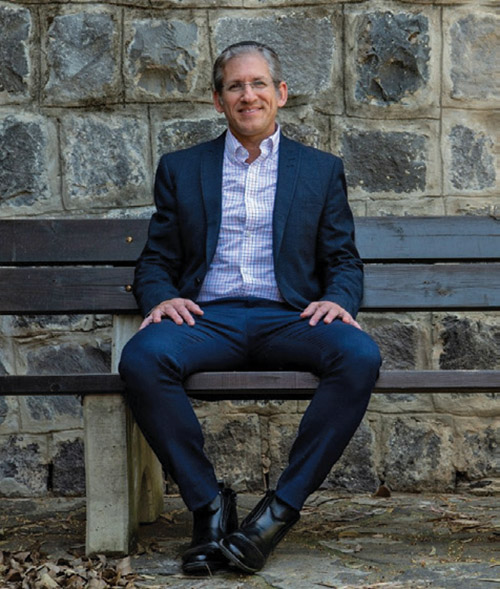

According to tradition, the Shavuot holiday celebrates the day the Jewish people received the Torah. Following the tradition of the Kabbalists, Jewish communities spend the holiday eve awake, studying Torah until dawn, in a custom known as tikkun leil Shavuot. This tradition’s source is a parable told by our sages that recalls the night before the Torah was given on Mount Sinai, when the people of Israel slept deeply until God woke them in the morning. We now make up for that sleep by staying up all night.
In every generation, that switch or correction, from sleep to wakefulness, takes on new relevance. In our time, this is also something that we as a society—religious, traditional and secular alike—can and should correct. Torah study should not be left only to the religiously observant community. In recent years, we have witnessed an awakening of interest in the non-observant world, and a new enthusiasm for our holy books and Jewish literature across all backgrounds and sectors.
Torah study involves learning about the commandments, laws and rituals that form our distinct way of life. For me, as an observant Jew, this framework for life is essential and obligatory, and I can’t imagine living without it. However, it should not be the sole purpose of Torah study. Torah study has value beyond following the mitzvot. In the Zohar, the primary Kabbalistic text, Torah study is described as a love story. What does this mean?
“The Torah is like a loved one, beautiful both inside and out, as she hides within her palace. There is one man who loves her, who people do not know about for he is hiding. Out of his love for her, he passes by the gates of her home all the time, looking for her. She knows that he is always there, at the gate of her home, so she opens a small door to her palace, showing her face to him, and then she immediately disappears once again. Only her lover, who is wholly devoted to her, knows that it is out of her love for him that she has revealed her face for a moment, to awaken him.”
The same, the Zohar tells us, is true of the Torah: “It does not reveal itself to anyone other than those who love it. The Torah knows that the one with a wise heart circles outside its home every day. So, what does it do? It reveals its face to him from within its palace, giving him a hint, and then retreats to its hiding place. No one else sees the Torah except for him, and his heart and mind and soul follow it, and the Torah continues to reveal itself and hide, awakening his love.”
The Torah is a love story. You don’t need to be religiously observant to be a part of this eternal love story. Moreover, there are some “religious” folks who study Torah extensively, despite the fact that it is not really a love story for them. They learn the text, they observe the details, but for them it is an intellectual, mechanical and technical experience and not an all-encompassing spiritual and emotional experience. Studying Torah should be different from any other type of academic or professional study. It is not merely an intellectual challenge, but a living and breathing text that calls on us to connect to it organically and to find its meaning in our lives. This kind of study can positively influence our character, our family ties and our relationship with society.
When you pay attention solely to the “religious” side of rituals and mitzvot, or the intellectual side of Talmud study, you may lose sight of the emotion and the passion that you can feel when you experience an authentic meeting with the living text of the Torah. The ultimate Torah study is the one described in the Talmud: “Rav said: A person does not learn Torah except from a place that his heart desires” (Avodah Zara 19a).
So what about you? Have you found love? Is Shavuot an opportunity to look for it?
Rav Ronen Neuwirth, formerly rav of the Ohel Ari Congregation in Ra’anana, is author of “The Narrow Halakhic Bridge: A Vision of Jewish Law in the Post-Modern Age,” published this month by Urim Publications.













